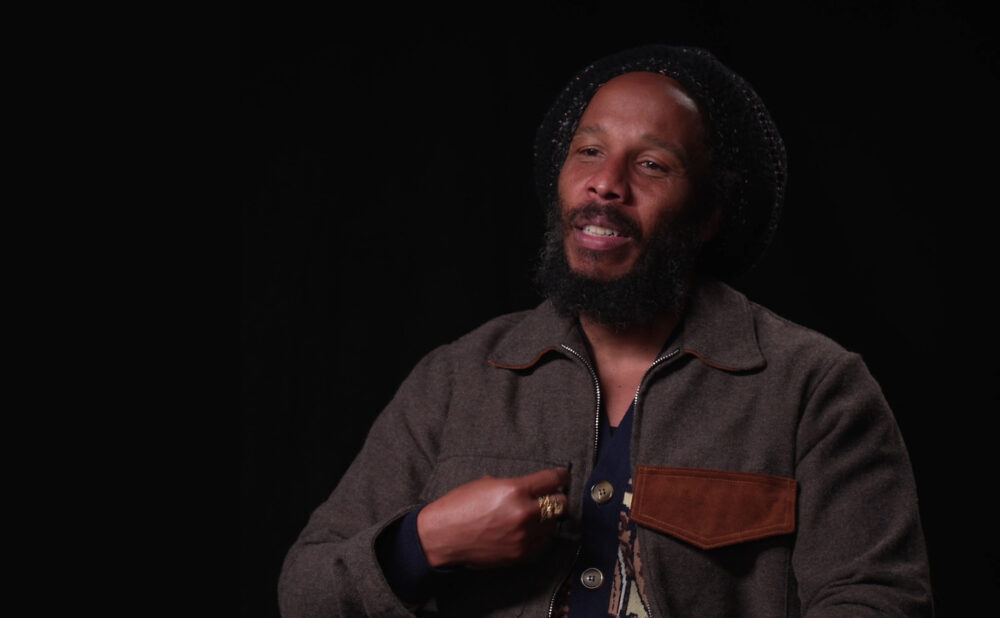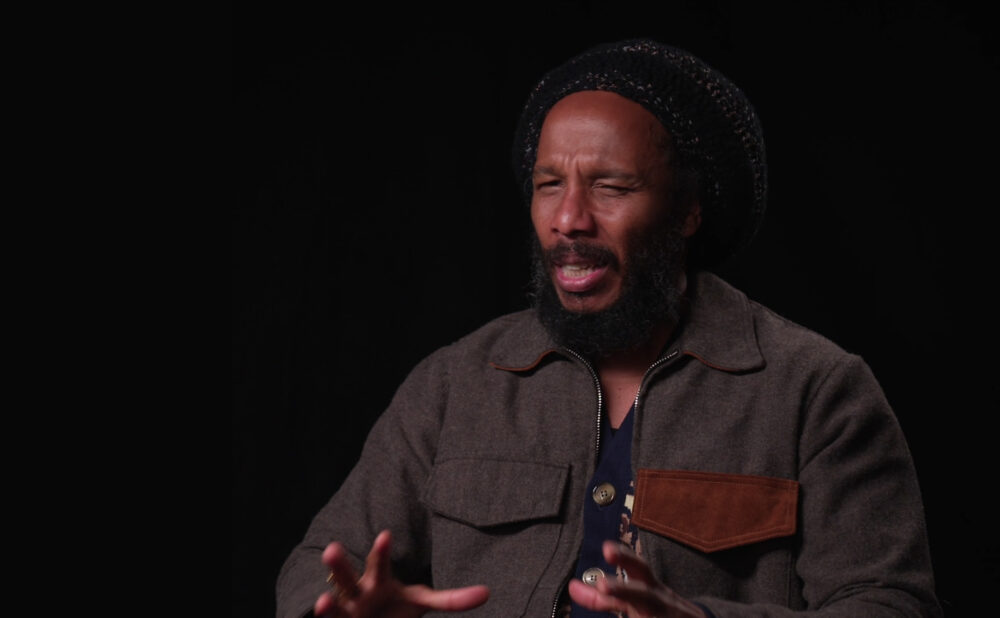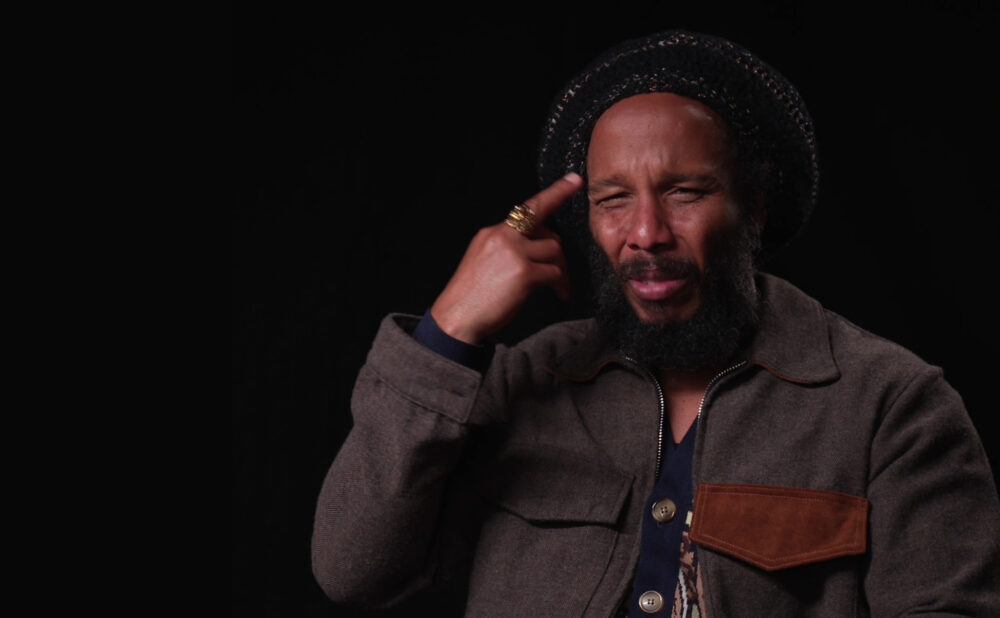Ziggy Marley made sure real story of his father told in new biopic
Marley family played major role in creating “Bob Marley: One Love,” explains his son
Even after a day of promoting Bob Marley: One Love, the excellent new biopic about his father that was produced with his and his family’s blessing, Ziggy Marley enthusiastically greets his latest interviewer. The welcome is made even warmer when I share that I saw the tour depicted in the movie when it played Toronto’s Convocation Hall in the ’70s and that I visited the family’s “spiritual home” in Trench Town the summer before.
Marley is as handsome as his father, full of charisma, with a smile as big as the room and a gaze that looks right into you. He’s eager to talk about the movie and when I ask him what his goal was in making it, he replies, “The goal kind of reveal itself. The idea was to make a film about my father and use this period of time [1976–1978] because it was a very life-changing period of time.
“As we were making the film the goal became clear that ‘one love’ is the message. That was a period of time when he was trying to unite Jamaica but it was an example to the world. The message of one love is a light in the darkness,” he continues. “This movie is a light, the billboard is a light, the marketing is a light to the world in this time that we are living in, which is full of a lot of division, a lot of hate, a lot of war, a lot of darkness — we need some light, not everybody have the light, but Bob still have the light.”
Marley explains that, for years, people have approached the family seeking to make a film but it never felt right. This time, it was the family that initiated the process “because the spirit” moved them, meeting with writers, producers and directors before settling on Brad Pitt’s Plan B films.
“I have a newfound respect for the movie industry,” says Marley. “It’s hard work.” He explains he was on set every day and regularly consulted with his sisters; his brother, who was the film’s music supervisor; and, of course, “We cannot forget the blessings of my mother,” Rita Marley, who emerges as a powerful figure in the film, able to keep up with her world-beating husband.
As a singer and now as a producer on the film, Marley has had a role in preserving his father’s legacy and I ask how important this is to him.
“Let me put it this way. My father’s legacy is a legacy of the Almighty. It’s a legacy that we carry. It’s a spiritual legacy. It’s not a physical legacy. It’s not a legacy of music. It’s a legacy of being good human being. So, the legacy is coming from way, way, way back. It don’t start with my father, my grandmother, my grandfather, my ancestors. It is a really, really strong legacy from thousands of years.”
I wonder if this focus on his father conjures any sadness, reminding him of what he missed with his father’s passing at only 36 years old when Ziggy was only 12.
“I’ve been sad many, many times and this time didn’t make me any more sad than any other time I feel sad. But the sadness is not one of sorrow; it’s just, kind of, melancholy. But what this film did for me, what it made me think of — and I don’t remember thinking of it before — watching Kingsley [Ben-Adir, who plays Marley] doing the role and tapping into a deep emotion inside Bob made me wonder what my father was going through during this time because it wasn’t a glorified time. It wasn’t a time of superstar and flashy. It was a very hard time, being shot by his own people, having to leave your country, going into exile, being diagnosed with cancer — so much going on.
“It made me think what kind of emotional effect that had on him psychologically, as a person. That’s hard, bro, and I never thought about it before because I always thought of my father as indestructible, tough and strong. But this just made me think about the human side a little bit more not just as my father but as a person.”
Among the film’s pleasures is the humanization of Marley, showing him as a family man, playing sports and having fun with his children and friends. What was it like when his father was home with the family?
He lights up and laughs, “Pure fun and joke, pure joy. Football, table tennis, dominoes, hanging out with your friends — it’s just joyfulness. There was serious times too, because there’s moments where some serious discussions were happening about unification, revolution, supporting the struggle in South Africa during the Apartheid days, all that, but on the regular, just fun, going to the country — just fun stuff.”
For all of the fun around the film, there were a few things that were essential to the family.
“There’s couple things we were very adamant about. Rastafari, make sure we get that, don’t play around with that. And Bob’s Pan-Africanism, his love for Africa, which a lot of people don’t get, the general public don’t really understand that side, the militant African pro-Africa side of him. We wanted to make sure people know how much Bob loved Africa and how important Africa was to him.
“And all the language [the patois spoken throughout the film without subtitles], we couldn’t do it without that, it was so important. We surrounded Kingsley with Jamaicans,” he explains.
“The majority of the cast is Jamaican, first-time actors too,” chuckles Marley. “It wasn’t really acting; they were just being themselves, which is the realist way — it was fantastic.”
And so is the film.
Bob Marley: One Love
Where: In theatres
What: Movie, 104 mins.
When: Now
Genre: Historical drama
Rating: NNNNN (out of 5)
Why you should watch: An uplifting and authentic, big-budget look at a tumultuous time in Bob Marley’s life as he survived an assassination attempt and was about to have his biggest commercial success.








